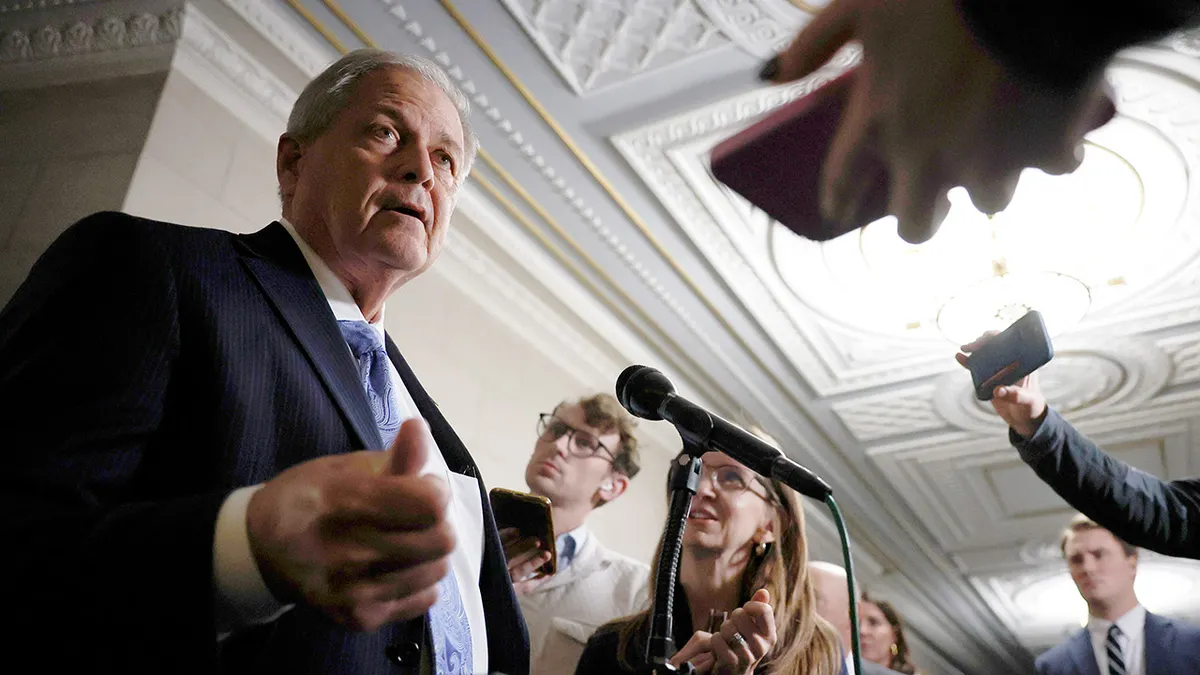In a significant move, House Republicans have introduced a comprehensive conservative policy framework designed to further President Trump's agenda. This development comes as the Senate progresses with its own version of the plan, highlighting the ongoing debate between the two chambers regarding the most effective approach to implementing the former president's policy objectives.
Earlier delays by House GOP leaders in initiating the process had caused frustration among Senate Republicans, who subsequently released a more streamlined version of the proposal. Both chambers are now aiming to move their respective proposals forward, with the Senate commencing its process on Wednesday.
The core strategy for both House and Senate Republicans involves utilizing the budget reconciliation process. This allows them to bypass the typical two-thirds majority requirement in the Senate and pass legislation with a simple majority, effectively eliminating the need for Democratic support. The measures included, however, must be related to budget and fiscal matters.

The House's extensive 45-page legislation allocates $300 billion in new spending towards homeland security, defense, and the judiciary, while simultaneously targeting at least $1.5 trillion in spending cuts across other areas of the federal government. A significant component of the bill is the $4.5 trillion allocated to the House Ways & Means Committee, intended to extend provisions within Trump's Tax Cuts and Jobs Act set to expire at the end of the year.
Critically, the bill addresses the looming debt ceiling by raising it by $4 trillion, a crucial demand from President Trump given projections indicating the U.S. could face a debt default if Congress fails to act. The legislation also sets a $2 trillion target for mandatory spending reductions, with the stipulation that any shortfall in achieving this target would result in a corresponding reduction to the $4.5 trillion earmarked for the tax cuts. All figures are projected over a 10-year period.
Senate Republicans had initially favored a two-bill approach, suggesting that separating border security, defense, and energy priorities from tax-related measures would allow for a quicker win on areas with broad Republican consensus. However, House Republicans expressed concern that the substantial political capital required to pass a reconciliation bill with slim majorities could lead to the expiration of Trump's tax cuts before they can be addressed.

The plan spearheaded by Senate Budget Committee Chairman Lindsey Graham includes increased funding for border security and defense, offset by reductions in green energy initiatives and other Biden administration priorities. Graham has rebuffed repeated calls from House Speaker Mike Johnson to prioritize the House's version of the legislation, leading to ongoing tension between the two chambers.
As of Wednesday afternoon, it remained unclear whether all internal disagreements within the House had been resolved. Rep. Ralph Norman, a fiscal conservative on the budget panel, indicated that conservatives were still pushing for additional inclusions in the resolution. This suggests that the final form of the legislation remains subject to further negotiations and amendments.
Adding another layer of complexity, Republicans on the Ways & Means Committee have voiced concerns that the allocated $4.5 trillion might be insufficient to fully implement Trump's tax policies over the next decade. This raises questions about the feasibility of achieving all the stated objectives within the proposed budget framework.
The competing proposals and internal divisions within the GOP underscore the challenges in navigating the complex legislative landscape. Balancing fiscal priorities, addressing the debt ceiling, and extending expiring tax cuts present a formidable task for Republican lawmakers as they strive to advance their agenda.








